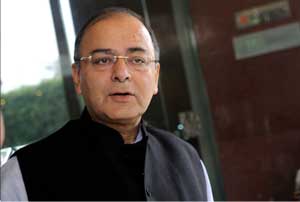- Home
- Medical news & Guidelines
- Anesthesiology
- Cardiology and CTVS
- Critical Care
- Dentistry
- Dermatology
- Diabetes and Endocrinology
- ENT
- Gastroenterology
- Medicine
- Nephrology
- Neurology
- Obstretics-Gynaecology
- Oncology
- Ophthalmology
- Orthopaedics
- Pediatrics-Neonatology
- Psychiatry
- Pulmonology
- Radiology
- Surgery
- Urology
- Laboratory Medicine
- Diet
- Nursing
- Paramedical
- Physiotherapy
- Health news
- Fact Check
- Bone Health Fact Check
- Brain Health Fact Check
- Cancer Related Fact Check
- Child Care Fact Check
- Dental and oral health fact check
- Diabetes and metabolic health fact check
- Diet and Nutrition Fact Check
- Eye and ENT Care Fact Check
- Fitness fact check
- Gut health fact check
- Heart health fact check
- Kidney health fact check
- Medical education fact check
- Men's health fact check
- Respiratory fact check
- Skin and hair care fact check
- Vaccine and Immunization fact check
- Women's health fact check
- AYUSH
- State News
- Andaman and Nicobar Islands
- Andhra Pradesh
- Arunachal Pradesh
- Assam
- Bihar
- Chandigarh
- Chattisgarh
- Dadra and Nagar Haveli
- Daman and Diu
- Delhi
- Goa
- Gujarat
- Haryana
- Himachal Pradesh
- Jammu & Kashmir
- Jharkhand
- Karnataka
- Kerala
- Ladakh
- Lakshadweep
- Madhya Pradesh
- Maharashtra
- Manipur
- Meghalaya
- Mizoram
- Nagaland
- Odisha
- Puducherry
- Punjab
- Rajasthan
- Sikkim
- Tamil Nadu
- Telangana
- Tripura
- Uttar Pradesh
- Uttrakhand
- West Bengal
- Medical Education
- Industry
Need GST Council like institution in healthcare: Arun Jaitley

NEW DELHI: Finance Minister Arun Jaitley Thursday made a case for developing a federal institution like GST Council in the healthcare and farm sector.
He hoped that such a federal body in the healthcare sector should face the least resistance from states, since the welfare schemes would be implemented through the states, with Centre only coordinating it.
"The federal institution experiment of the GST having succeeded ....there are two other sectors which eminently require federal institutions of this kind.
"The GST was constitutionally provided for. Those areas are not constitutionally provided for, but political maturity can impose on governments to try that experiment. One is healthcare and one is agriculture," Jaitley said while addressing the CII Health Summit.
Listing out the necessity for setting up such a federal body, he said the states and Centre both spend on healthcare and have their respective schemes.
The Minister, however, did not elaborate on the details of benefits which may accrue to the farm sector.
Jaitley said the states have their hospital, and the Centre is also establishing institutes of eminence across the country. The Centre has implemented Ayushman Bharat, and states also have similar schemes, he said.
"All these need to be merged so that the benefit of these merged resources starts to benefit the patient population of the country. Obviously, it will be implemented through the states, with Centre coordinating it.
"And if you have a federal institution, ultimately this is not a turf issue if my scheme is better than your scheme. It is essentially a welfare issue, whether the patients in my state are better than the patients in other states. Whether they have more facilities. Every state would stand to benefit if this coordination with such a federal institution actually came up between the Centre and states," Jaitley added.
In the run-up to the implementation of India's biggest indirect tax overhaul Goods and Services Tax on July 1, 2017, the Centre and states had agreed to set up a GST Council, chaired by Union Finance Minister and comprising finance ministers of all states.
"We have had 31 meeting and taken several decisions, all unanimously. So the common tax system came up, merging central and state tax by virtue of a federal body which was coordinating it. That's India's first experiment by creating a federal institution.
"Healthcare is an area where there would be the least resistance (for a federal institution), because its a welfare targeted programmes where we can move significantly a long way in making sure India remains healthier," he said.
Recalling the rollout of healthcare scheme Ayushman Bharat, Jaitley said when the scheme was being conceptualised, there were discussions on whether it will succeed, how will private sector hospital treat patients, how will the queues and footfalls at hospitals be handled.
Prime Minister Narendra Modi in September launched the Ayushman Bharat- Pradhan Mantri Jan Aarogya Yojana which aims to provide a coverage of Rs 5 lakh per family annually, benefiting more than 10.74 crore poor families for secondary and tertiary care hospitalisation through a network of empanelled health care providers.
As many as 3 lakh poor people have benefited from Ayushman Bharat health scheme in the last one-and-a-half months.
"I foresee in next 3-4 years, this figure exponentially increasing as the campaign would be picking up so that the awareness that such a facility is available and this would lead to a far greater realisation and patients going to these institutions and institutions also improving in terms of expertise," Jaitley said.
Medical Dialogues Bureau consists of a team of passionate medical/scientific writers, led by doctors and healthcare researchers. Our team efforts to bring you updated and timely news about the important happenings of the medical and healthcare sector. Our editorial team can be reached at editorial@medicaldialogues.in.
Next Story


